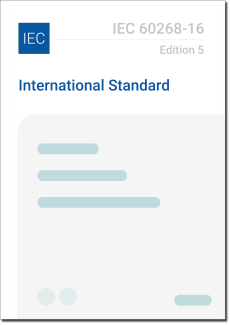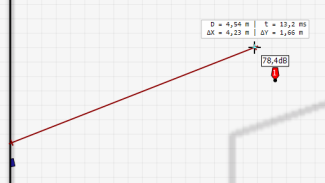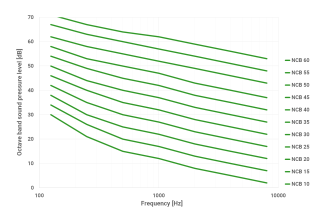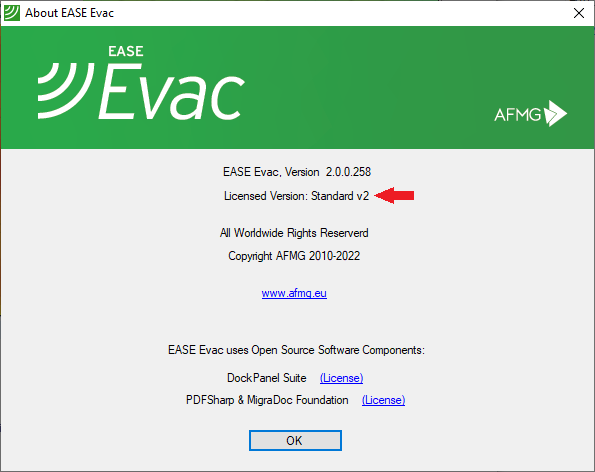General Terms and Conditions of AFMG Technologies GmbH
1. Scope
1.1 The following Terms and Conditions apply to all contracts of AFMG Technologies GmbH (“Software Developer”) relating to sales, maintenance, installation and other services. They also take precedence over any conflicting terms and conditions of the customer, except where the validity of the latter has been expressly approved.
1.2 Separate contracts, each independent of the other, shall be drawn up regulating the production of software, the provision of coaching and training, support and maintenance for the software, and other services.
1.3 Business relations are entered into only with companies, legal entities incorporated under public law or specialised entities subject to public law. Business dealings are not entered into with customers - natural persons - who are not self-employed or otherwise trading on their own account.
2. Conclusion of contract
2.1 Orders via the online shop of the software developer located at http://store.afmg.eu are placed in the following way: The customer may initiate a purchasing contract covering the items in his shopping trolley by clicking “Pay Now”. This is only possible, however, if he has first accepted these Terms and Conditions by clicking “Accept Terms and Conditions”, thereby linking the Terms to his order. The confirmation of receipt, which AFMG will send immediately and which will contain all the details of the order, does not imply acceptance of the initiated purchasing contract. The purchasing contract is deemed entered into when AFMG dispatches the ordered goods and confirms the dispatch in writing.
2.2 In respect of other services offered by the software developer, including products available through channels other than the online shop, a contract is not deemed entered into until the customer has countersigned the confirmation of contract, the wording of which determines the substance of the contract.
3. Scope of software contracts; licensing conditions
3.1 The software developer will provide the customer with a copy of the purchased software by email or FTP or as a download from the internet address http://downloads.afmg.eu and also with the relevant electronic manual as a PDF, HTML or DOC document. These are intended exclusively for the personal use of the customer. The software developer retains all copyright, in particular rights to all recordings and documentation.
3.2 The customer may also order a duplicate CD for back-up or archiving purposes or for the identification of defects. The replication of recordings or documentation is prohibited.
3.3 The customer must take the necessary measures to prevent third parties from gaining unauthorised access to the software. He must store the software in a secure location that precludes such access. The customer’s employees and colleagues are to be familiarised with the terms of this contract and with the software developer’s ownership of copyright.
3.4 Barring agreements to the contrary, this contract does not cover installation of the software supplied by the software developer.
3.5 The customer may only use a copy of the software on a single computer. Where the customer purchases a multiple-use version, he may use the agreed number of copies on the appropriate number of computers. “Use” encompasses the saving of the software in a temporary storage medium (RAM) or on a permanent storage device (in particular on a hard drive, removable disk, USB stick or CD-ROM).
3.6 The customer may not lease or lend the licence. This restriction includes ceding the licence to a third party with whom he shares office space. If there is transfer to a third party the whole software contract must be transferred, not simply the licence. The third party must accept that the provisions of the contract still apply and the customer will then provide the new party with all copies and back-ups of the programme and the digital manual as a working copy together with any back-ups. In so doing, he forfeits his right to use the software and must de-install the software from his system.
3.7 The transfer of the contract to a third party is valid only if the software developer has been informed in advance and has consented to the transfer in writing. Only in exceptional cases and with good reason will he withhold consent.
3.8 Pursuant to § 69 e UrhG the software supplied by the software developer may not be reconverted, decompiled or disassembled. Modifications to the software are only permissible if they help to correct defects in the software and if the software developer has not corrected said defects within a statutory period.
4. Support and maintenance
4.1 Support and maintenance for the software are provided on the basis of a maintenance contract.
4.2 Maintenance covers the services expressly listed in the confirmation of the order. The minimum level of maintenance involves a hotline service centre, the automated provision of large and medium-sized updates, remote diagnosis and maintenance and an online service for providing interim releases.
4.3 Maintenance services relate exclusively to software produced by the software developer. If the customer sells this software, the software developer is no longer obliged to provide support and maintenance. The developer will repay to the customer a portion of the fee representing the unused period up to the end of the contract, but only if he has been able to save costs or to make money by providing the services to another party.
4.4 Should the customer fall behind on payment the software developer is entitled to withhold support or maintenance until payments are up-to-date and to demand payment in advance.
5. Other services
5.1 The software developer provides other services to the customer. These will include installation of the software where this has been agreed in writing. Up-to-date information on fees for additional services is available from the software developer. The customer undertakes to bear any costs incurred by the software developer in the course of providing these services, where the costs have been discussed in advance.
6. Prices, conditions of payment, dispatch and delivery
6.1 Prices are as set out on the latest list compiled by the software developer and are exclusive of VAT, postage/packaging and insurance. All sums invoiced are payable immediately. Interest is payable on arrears and is set at 8% above the basic rate pursuant to § 247 BGB.
6.2 Set-off is only admissible in the case of claims that are uncontested, are contested but ready for decision or have been declared final and absolute. The customer has no rights of retention where they are unrelated to this contractual relationship. In exercising a right of retention, the customer may not retain a sum higher than that of his own claim.
6.3 In the case of an online purchase, and where the software developer receives the customer’s order direct, the software will be made available to the customer within three working days of receipt of the order. Where payment in advance is required, delivery will be made only after payment has been received in full by the software developer.
6.4 In all other cases (with offline orders or where a CD or other physical item has been ordered) delivery will be within three weeks unless otherwise specified in the confirmation of contract. The delivery period begins on the day of confirmation of contract. The software developer will enter the date on the confirmation.
6.5 Should the software developer be prevented by unforeseen and unavoidable circumstances from complying with his delivery obligations, the delivery period shall be extended commensurately. Where this is the case, the software developer will inform the customer without delay. The date for determining whether the delivery deadline has been met is the date of dispatch of goods.
6.6 Where the software developer is accountable for failing to honour a delivery deadline the customer may extend the deadline by an appropriate period. Only when this extension period has elapsed without delivery being made can he withdraw from the contract.
6.7 Responsibility for the software is transferred to the customer at the moment when the goods are entrusted by the software developer to the postal service, courier or haulier.
7. Reservation of title
7.1 The software developer retains ownership of all data storage media and other goods until payment has been received in full of all sums outstanding at the time of supply of goods relating to this contract between the customer and the software developer. It is the duty of the customer to diligently safeguard and adequately insure all products that remain the property of the software developer.
7.2 The software is supplied free of third-party property rights. Should a third party accuse the customer of infringing his industrial property rights in respect of the software supplied, the customer must notify the software developer immediately. The two contracting parties will then consult on how to respond.
8. Claims arising from defective goods
8.1 The customer undertakes to examine the software and the associated manual for defects within two weeks of receipt, and in particular to ensure that no components are missing, that the manual is complete and that all the key features of the programme function as they should. Before a third week has elapsed the customer should have notified the software developer, in writing, of any defects identified and any problems that can be identified in the course of a regular inspection. Notification should include a detailed description of all faults. Should the customer fail to examine the goods and report defects within the said period, the software is deemed to be faultless and the transaction to have been approved.
8.2 Should steps have to be taken by the software company to correct a defect, it is the responsibility of the customer to back up important files prior to repair works being carried out.
8.3 The customer is not entitled to claim compensation for defects arising from mistakes caused by damage, incorrect connections or incorrect operation. Neither is the software developer liable for damage resulting from modifications to the goods and services by the customer or third parties, unless the customer can demonstrate that said modifications do not seriously impede the software developer in his efforts to analyse and correct the problem and that the defect was already present when the customer took possession of the software.
8.4 Should the customer withdraw from the contract, he shall pay to the software developer an appropriate fee reflecting his usage of the software up to the date of withdrawal. This user fee is calculated on the basis of a three-year depreciation period.
8.5 Claims arising from defects are subject to a statute of limitations of one year, starting from delivery of goods.
8.6 The software developer is liable for defects in the software pursuant to the law governing the sale of goods:
9. Limitation of liability
9.1 The software developer is fully liable for loss of life, bodily harm or compromised health resulting from negligence and breach of obligations on his part or from deliberate or negligent breach of obligations by one of his agents or assistants.
9.2 In the case of other liability claims the software developer shall be fully liable only where the software is found not to possess the advertised features and functions or where it can be demonstrated that the software developer or his agents or key employees are guilty of premeditation or gross negligence. Where the fault can be attributed to other assistants or lower-echelon employees the software developer shall be liable only in respect of ordinary negligence as set out in Point 6.4.
9.3 In respect of ordinary negligence the software developer is liable only where he is in breach of an obligation whose observance is of special importance for the fulfilment of the purpose of the contract (cardinal obligation).
9.4 Barring invocation of Point 9.1, liability for loss of data is limited to the standard cost of recovery that would have been incurred in the course of regular backing up of data commensurate with the risk of loss. Liability as set out in the Product Liability Act (Produkthaftungsgesetz) remains unaffected.
9.5 The above provisions also apply in favour of the colleagues and assistants of the software developer.
10. Final provisions
10.1 Contracts between the software developer and the customer are interpreted exclusively in accordance with the law of the Federal Republic of Germany.
10.2 Place of fulfilment for both parties is the office of the software developer in Berlin. Berlin is also the legal venue.
10.3 In a case where one or more provisions agreed on by the contracting parties become, or are found to be, invalid, this shall not affect the validity of the remaining provisions. An invalid provision shall be replaced by one that most nearly reflects the purpose of the original provision as intended by the contracting parties. If the provisions of this contract are found not to cover all eventualities, the lacuna is to be filled with a provision or provisions that the parties would have agreed on if full account had been taken of the legal position, the matter at hand and the legitimate interests of each party.
Version: 1.3
Berlin, December 1, 2021




